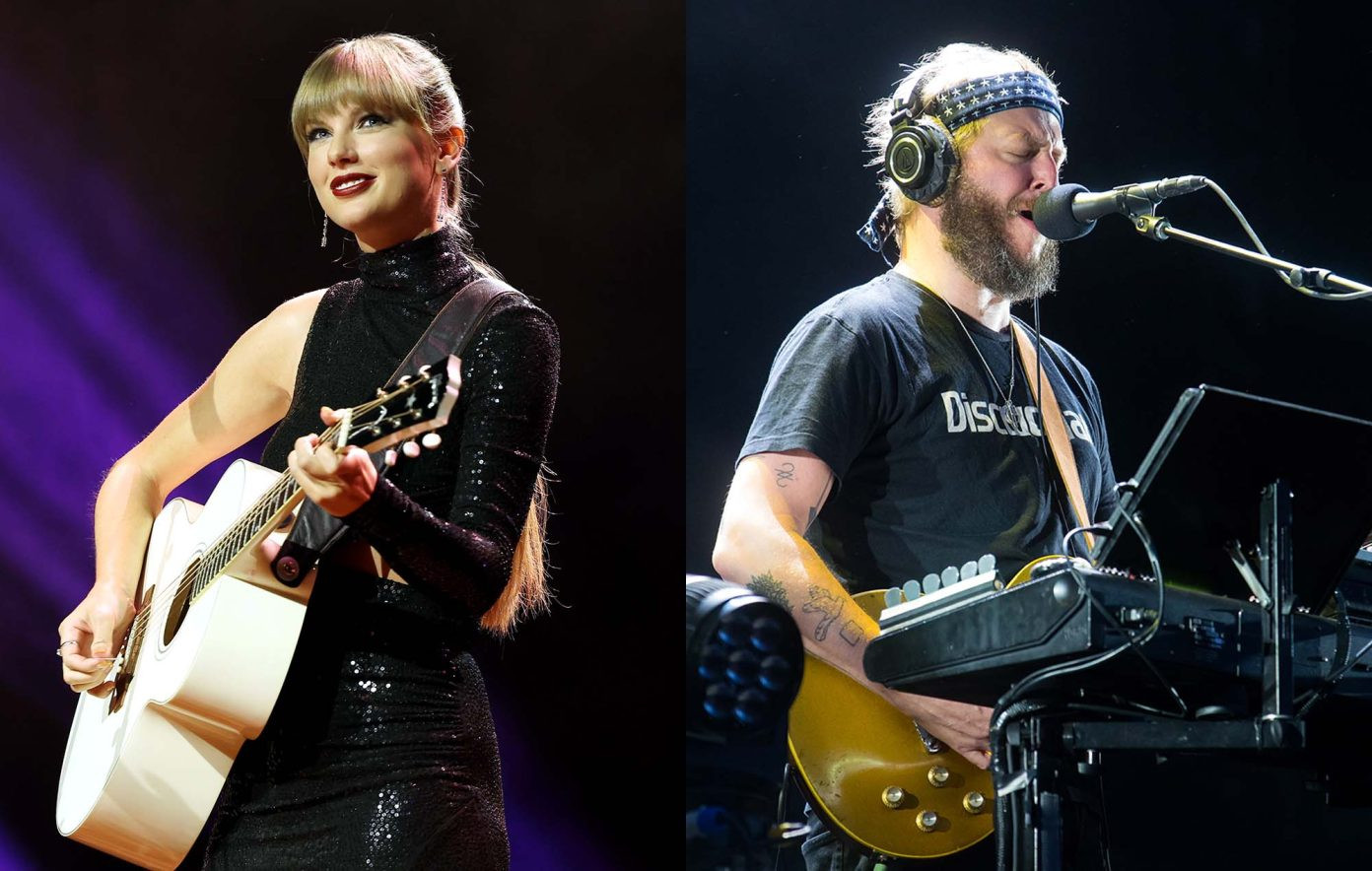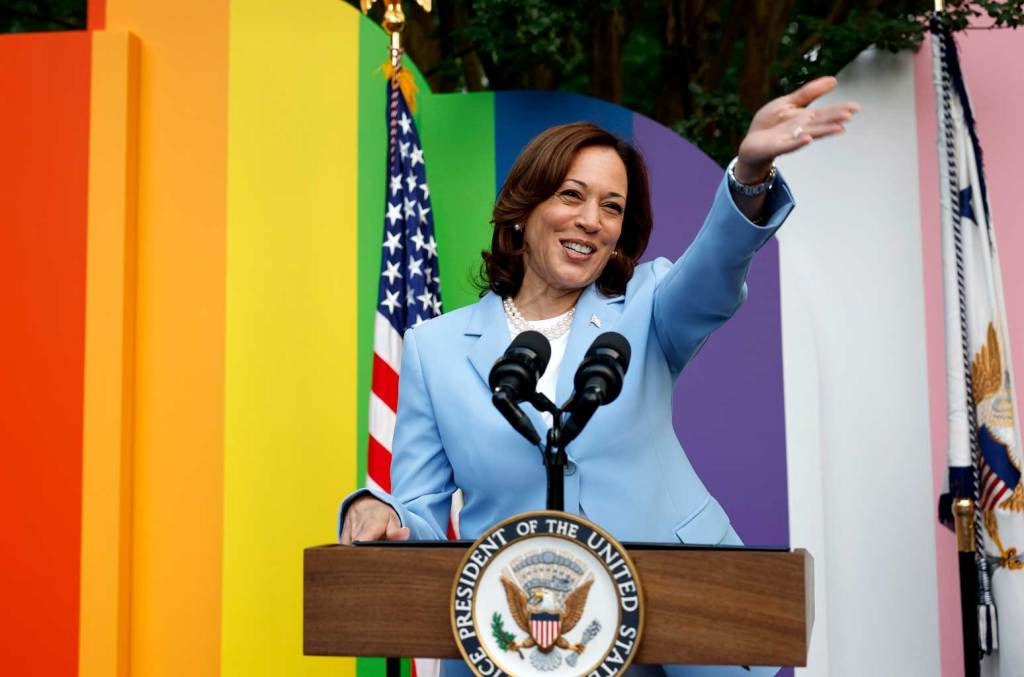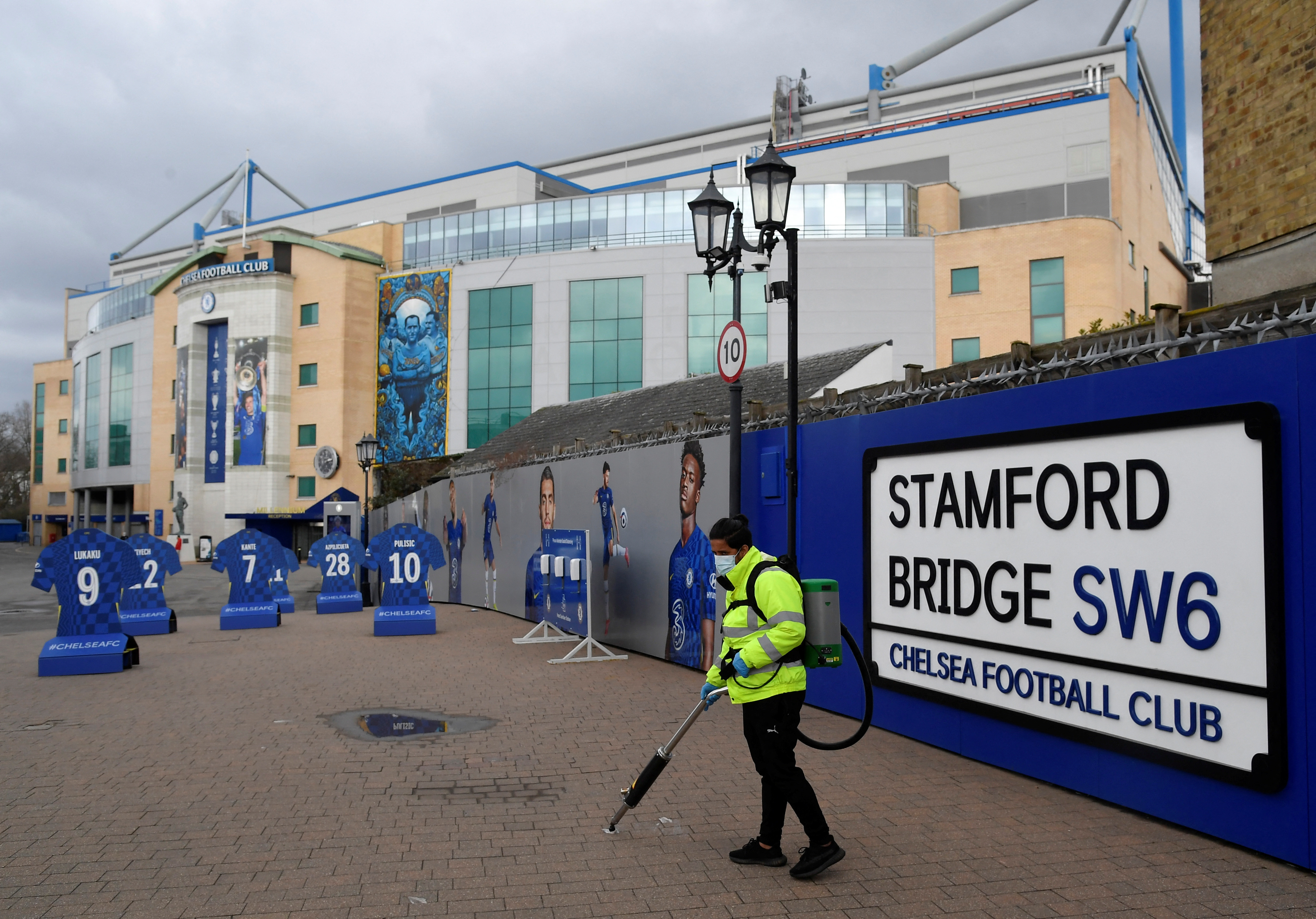Bon Iver, the indie folk band fronted by Justin Vernon, took the stage at a campaign rally for Kamala Harris and Tim Walz in Eau Claire, Wisconsin on Wednesday. The band played a short set, including some of their most popular hits, and closed out the performance with a rendition of the traditional song “The Battle Cry of Freedom.”
Vernon, who was born in Eau Claire, Wisconsin, told the crowd he wanted to end the set with “a nice old patriotic song that’s been rolling around in my head these last months.” He then launched into a performance of “The Battle Cry of Freedom,” a song written by George Frederick Root in support of the Union and abolitionism during the Civil War. Vernon’s performance of the song was particularly poignant given the recent controversy surrounding the use of patriotic symbols in political campaigns.
“We’re here for the right reasons, and we all know what we’re here for, so we’re going to do our thing,” Vernon said before playing the song. “Make this music and make way for the people that we need to hear from.”
Bon Iver’s performance was a welcome addition to the rally, which was held in support of Harris’ bid for the presidency. Harris has been criticized for her lack of charisma and her inability to connect with voters, but the band’s performance helped to inject some energy and excitement into the event.
The rally in Eau Claire, Wisconsin was one of the first events for Harris and her new running mate, Minnesota Governor Tim Walz. The duo has been touring the country in an effort to drum up support for their campaign. It seems that Harris is hoping to energize voters with a message of unity and togetherness, which is a strategy that has been successful for other politicians in the past.
Bon Iver’s performance was a reminder that music can be a powerful tool for political activism. The band has a long history of using their platform to speak out on social and political issues, and their performance at the rally was a testament to their commitment to making a difference.
Bon Iver’s History of Political Engagement
Bon Iver has a long history of political engagement, both locally and nationally. In 2016, the band played at several rallies and fundraisers for Bernie Sanders’ presidential campaign. Vernon was also a vocal advocate for Sanders in the 2020 election. In recent years, the band has also been involved in promoting nonpartisan voter registration drives, including at the Eaux Claires Music Festival that Vernon co-founded with The National’s Aaron Dessner.
The band’s decision to perform at the rally for Harris and Walz is a sign of their commitment to using their platform to advocate for the causes they believe in. Bon Iver is not the first band to perform at a political rally, and they are certainly not the last. Music has always been a powerful force in politics, and it is likely that bands will continue to use their platform to speak out on social and political issues.
The Importance of Music in Politics
Music has always played an important role in politics. From the anthems of the Civil Rights Movement to the protest songs of the Vietnam War, music has been used to inspire, motivate, and mobilize people to action. In recent years, music has become increasingly important in politics as politicians have sought to use music to connect with voters and create a sense of shared identity.
Music can be a powerful tool for political activism. It can be used to spread awareness about important issues, rally support for a cause, or simply provide a soundtrack for a political event. In the age of social media, music is even more powerful as it can be shared quickly and easily, reaching a wide audience.
Bon Iver’s performance at the rally for Harris and Walz is a reminder of the importance of music in politics. The band’s music, and their message, will likely resonate with voters across the country.
The Future of Music in Politics
Music is likely to play an even more important role in politics in the years to come. As the world becomes increasingly interconnected, music will be a powerful tool for politicians to connect with voters and spread their message. Bands like Bon Iver, who are willing to use their platform to speak out on social and political issues, will likely be at the forefront of this movement. The future of music in politics is bright, and it is likely that music will continue to be a powerful force in shaping the world around us.
The next chapter in the story of Bon Iver’s political activism is yet to be written. It is clear, however, that the band is committed to using their platform to make a difference in the world. They are a powerful example of how music can be used to inspire, motivate, and mobilize people to action. Their performance at the rally for Harris and Walz was a reminder of the power of music in politics, and it is likely that they will continue to be a force in the world of politics for years to come.
Bon Iver and the Power of Music in Politics: An Encore
Bon Iver’s performance at the Harris-Walz rally was a powerful reminder of the power of music in politics. The band’s music was able to connect with voters on a personal level, and their message of unity and hope resonated with the audience. Bon Iver’s performance was a powerful example of how music can be used to inspire, motivate, and mobilize people to action.
The band’s performance was also a reminder of the importance of artists using their platforms to speak out on social and political issues. Bon Iver has a long history of using their music to advocate for the causes they believe in, and their performance at the rally was a testament to their commitment to making a difference in the world.
The future of music in politics is bright. Artists like Bon Iver are proving that music can be a powerful force for change, and it is likely that they will continue to be a force in the world of politics for years to come.


















